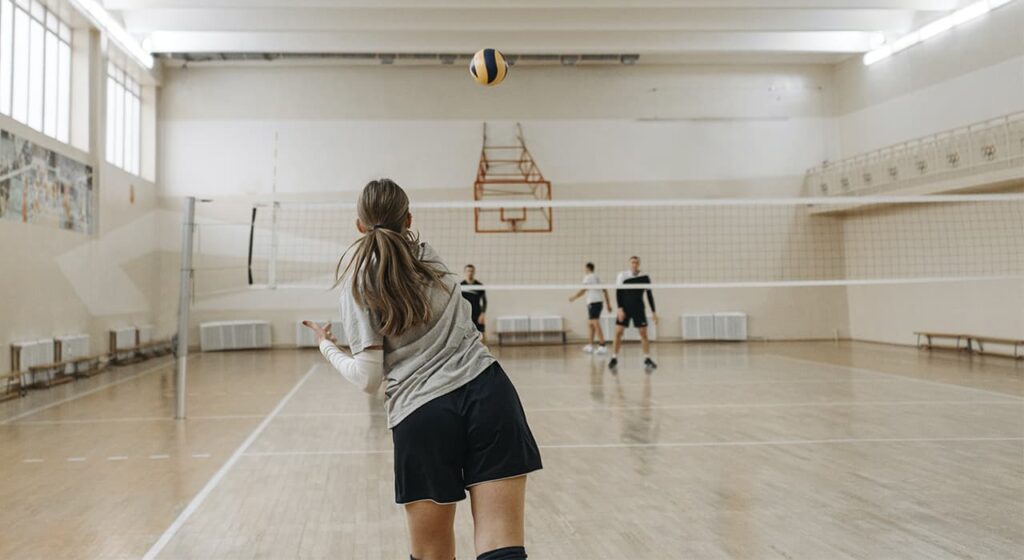
Team sports not only have a positive impact on a child’s health, but also make them more sociable and self-confident. However, on the other side of the scale is the risk of injury, because team disciplines involve constant contact with other players.
Volleyball is a happy exception: an exciting game form, the absence of clashes with rivals and benefits for the whole body make it an ideal sport for a child.
Volleyball belongs to the “late” sports – a set in groups for boys and girls, as a rule, is from 8-10 years. Despite the fact that you can start playing in any physical form, it is advisable to provide the child with preliminary training before this age. It can be both general physical training (GPT) and any sport, and swimming is good for strengthening the back.
In addition, the entrance to volleyball is not closed for older children: you can start at 13 and 15 years old. If the child has good initial data, has preliminary physical training and, of course, talent, you can become a professional player, even starting training in high school.
MEDICAL CONTRAINDICATIONS
Like any active sport, volleyball has a number of medical contraindications.
So, you can not play for children with:
- instability of the cervical vertebrae;
- asthma;
- diseases of the musculoskeletal system;
- flat feet;
- ulcers or diseases of the gastrointestinal tract.
If a child has these or other diseases, it is necessary to be examined by a doctor. In some cases, volleyball for children may not be contraindicated, but rather recommended: for example, if a child needs to improve posture, develop joint mobility or train eye muscles.
Volleyball for children is an optimal sport: the lack of direct contact with opponents reduces the risk of injury, and both boys and girls like to play ball.
In addition, you can play volleyball with any physical data, and even growth, contrary to popular belief, does not play a decisive role: the team needs not only tall players, but also small and nimble ones – they are often taken to the position of libero.